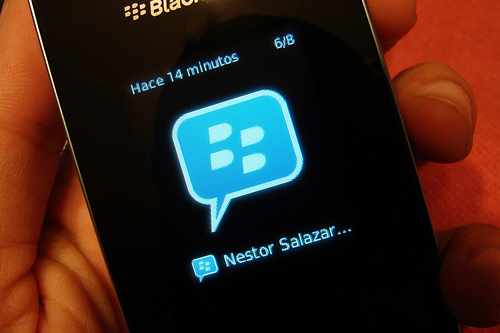Amid RIM’s seemingly-unending struggles, the company has seen a light: BlackBerry Messenger.
[aditude-amp id="flyingcarpet" targeting='{"env":"staging","page_type":"article","post_id":460430,"post_type":"story","post_chan":"none","tags":null,"ai":false,"category":"none","all_categories":"business,mobile,","session":"B"}']RIM says that use of its proprietary instant message service has spiked from 5.3 to 55 millions users over the past three years, even as the Blackberry’s user base and market share have been eroded by the likes of the iPhone and Android, as The Wall Street Journal reports.
The continued success of BBM gave former RIM co-CEO Jim Balsillie an idea: RIM could capitalize on its popularity by licensing the software to competitors.
AI Weekly
The must-read newsletter for AI and Big Data industry written by Khari Johnson, Kyle Wiggers, and Seth Colaner.
Included with VentureBeat Insider and VentureBeat VIP memberships.
But the problems with this plan were immediately clear. Letting third-party companies use the service would undoubtedly increase BBM usage numbers, but it would also remove one of the BlackBerry’s most key differentiators.
That argument is a large part of why RIM’s new CEO Thorsten Heins axed the plan. RIM won’t be doing any licensing deals under his watch.
But where does that leave BBM? Solely in the hands of BlackBerry 10, it’s next-generation OS set for release later this year. But with competition from Apple’s iMessage and a bevy of other iOS and Android messaging apps at all-time high, RIM is going to have a hard time attracting users back to BBM no matter what operating system its running on.
VentureBeat's mission is to be a digital town square for technical decision-makers to gain knowledge about transformative enterprise technology and transact. Learn More

